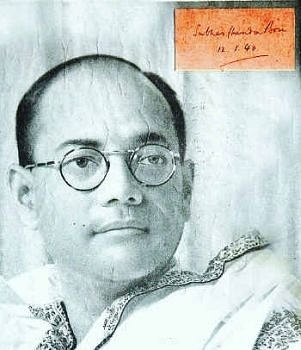
The Netaji Files: The Court Takes Note
The Calcutta High Court has directed the government and intelligence agencies to state their stand on declassifying documents relating to Netaji.
The Calcutta High Court, on 9 December, directed the Prime Minister’s Office, the Ministry of Home Affairs, Intelligence Bureau, Research and Analysis Wing and other agencies to file affidavits stating their stand on declassifying secret documents relating to Netaji Subhas Chandra Bose.
Swarajya has been relentlessly pursuing the case with articles on the suspicious behaviour of successive governments — mostly of the Congress — in dealing with the alleged whereabouts of Netaji post-1945.
Justice Asim Banerjee and Justice Ashish Kumar Chakraborty directed the government to file an affidavit before the court within two weeks after the winter holidays after hearing a Public Interest Litigation filed by Kolkata-based NGO India’s Smile.
The court has also issued notices to other respondents listed by the petitioners, including Rajya Sabha MP Sukhendu Sekhar Ray, Chandra Kumar Bose, spokesperson for the Bose family and writer Anuj Dhar (who is a Swarajya columnist).
The nationwide interest in the demand started following Dhar’s 2012 book India’s Biggest Cover-Up, which called for the declassification of all Netaji files as a prerequisite to resolving the controversies about his death.
The PIL states that “the whereabouts of the National Hero is still kept in ‘Top Secret’ against the wishes of the people”, even as the news of the death of Bose in Taiwan in August 1945 “is not supported by any concrete evidence”.
“It is reported by Anuj Dhar that a number of files have already been destroyed by the Government of India; and the remaining files are not disclosed and/or de-classified for public information on the alleged ground that those files are ‘Top Secret’, and declassification of the same may lead to serious law and order problem in India, particularly in West Bengal, and will hurt the relation with some foreign countries.”
Subhas Chandra Bose was reportedly killed in an air crash in Taipei towards the end of World War II. Since then the issue of his death has remained mired in mystery. So far the matter has been probed thrice. While the Shah Nawaz Committee (1956) and G.D. Khosla Commission (1970-74) concluded that the news of Netaji’s death was true, the Justice Mukherjee Commission of Inquiry (1999-2005) was of the view that the news had been planted to allow Bose to escape from the Allies.
The Manmohan Singh government rejected the Mukherjee Commission report with no explanation given in the ATR (Action Taken Report) tabled in Parliament in 2006.
Since then, Dhar and his friends, who go by the name of Mission Netaji, have been making efforts through Right to Information Act requests and others means.
A very large number of Indians do not believe that Netaji died in the plane crash. And if you do not believe that, ask yourself a a simple—and till-now answered—question: If he did die in that accident, why all this secrecy about the documents?
What is it that all our governments are so desperate to hide?